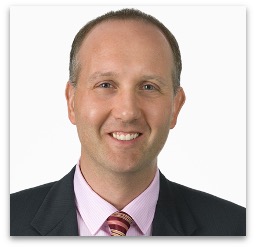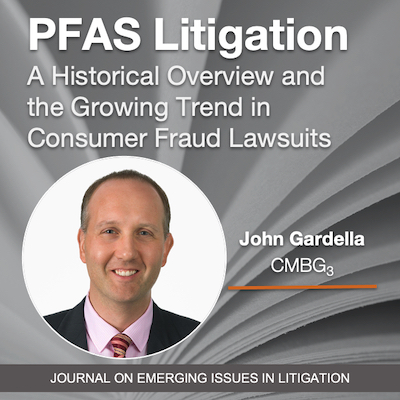HB Litigation Conferences presents
a CLE-eligible webinar
a CLE-eligible webinar
PFAS Consumer Fraud Litigation and Regulation
On August 26, 2022, yet another PFAS consumer fraud lawsuit was filed against a product manufacturer in which it is alleged that since the products contained PFAS and the company marketed the products as environmentally friendly and safe for use by consumers, a proposed class of consumers was deceived into buying the allegedly unsafe products. The lawsuit is not an isolated incident, as there have been over 20 such lawsuits, almost all of them filed in 2022. With the ever-increasing media, political and scientific attention being given to PFAS, the panelists predict that these lawsuits will continue to increase at an exponentially increasing rate moving forward against companies of all sizes that manufacture and supply products. Bringing together almost 20 years of product litigation experience and decades of scientific expertise in the field of chemicals such as PFAS, the panelists will discuss the legal issues that companies are facing from current or legacy uses of PFAS (whether intentional or not) and practical solutions that can be taken pre-lawsuit to understand and minimize risk.
Questions answered:
What do state and federal regulations say about PFAS in drinking water?
If your company doesn’t use the two original types of PFAS, are you at less risk of litigation?
Which industries currently face the most risk of PFAS-related consumer fraud cases?
Are plaintiffs securing significant verdicts in personal injury litigation?
And more!
Plus, email your questions to the presenters.

On Demand CLE Webinar
What you get
- PowerPoint and supplemental materials.
- Complete recording for later review.
- Answers to your questions via email.
- Invitation to contact speakers.
- 1.5 CLE credit*.
- CLE assistance.
*Subject to state bar rules. For licensed attorneys.
Download a free article!
Meet the Speakers

John Gardella
Shareholder | CMBG3
John is a recognized thought leader on PFAS issues and a seasoned trial attorney with over 75 verdicts. He the Chair of the firm’s PFAS, Environmental, Risk Management & Consulting, and ESG practice groups. His thought leadership and predictive risk abilities with respect to PFAS earned him the honor of being the only person in the country that was recognized as a thought leader on PFAS in 2020 and 2021 by the esteemed National Law Review.
In his environmental and toxic torts practice, John represents companies ranging in size from small mom-and-pop businesses to Fortune 100 and Fortune 500 companies. Companies seek John’s expertise on matters ranging from compliance planning and audits to litigation of pending cases. John also Chairs the firm’s CMBG3 Cares charitable program, and is committed to supporting various charitable organizations, specifically through raising money for them through marathon and triathlon participation.
Education: Vanderbilt University, magna cum laude, B.A. Economics, minor Japanese; Vanderbilt University Law School, J.D. (Associate Editor of the Vanderbilt Transnational Law Journal).


Frank Pagone
Manager | RHP Risk Management Inc.
Manager | RHP Risk Management Inc.
Dr. Pagone received his B.S. from Purdue University, his M.S. in Public Health – Industrial Hygiene and Ph.D. in Public Health from the University of Illinois at Chicago (UIC) and is certified by the American Board of Industrial Hygiene (ABIH) in the comprehensive practice of industrial hygiene (CIH). His graduate research topics included human health risk assessment including probabilistic risk assessment, exposure assessment and cancer risk analysis, spatial statistics, and Geographic Information Systems (GIS). He is also certified in Geospatial Analysis and Visualization with a focus on GIS.
Dr. Pagone supports a variety of industrial hygiene services defining, analyzing, characterizing, assessing, and managing occupational and non-occupational risks to human health and the environment and research of a variety of environmental health and safety topics. He has also consulted on data management and analysis including collection of population, health, and environmental risk/hazard data as well as taught a variety of topics including air quality and management, industrial hygiene, and statistics. Dr. Pagone has also been involved with projects to evaluate industrial point-source emissions to residential receptor sites in surrounding communities for purposes of assessing risk for both cancer and non-cancer endpoints.


